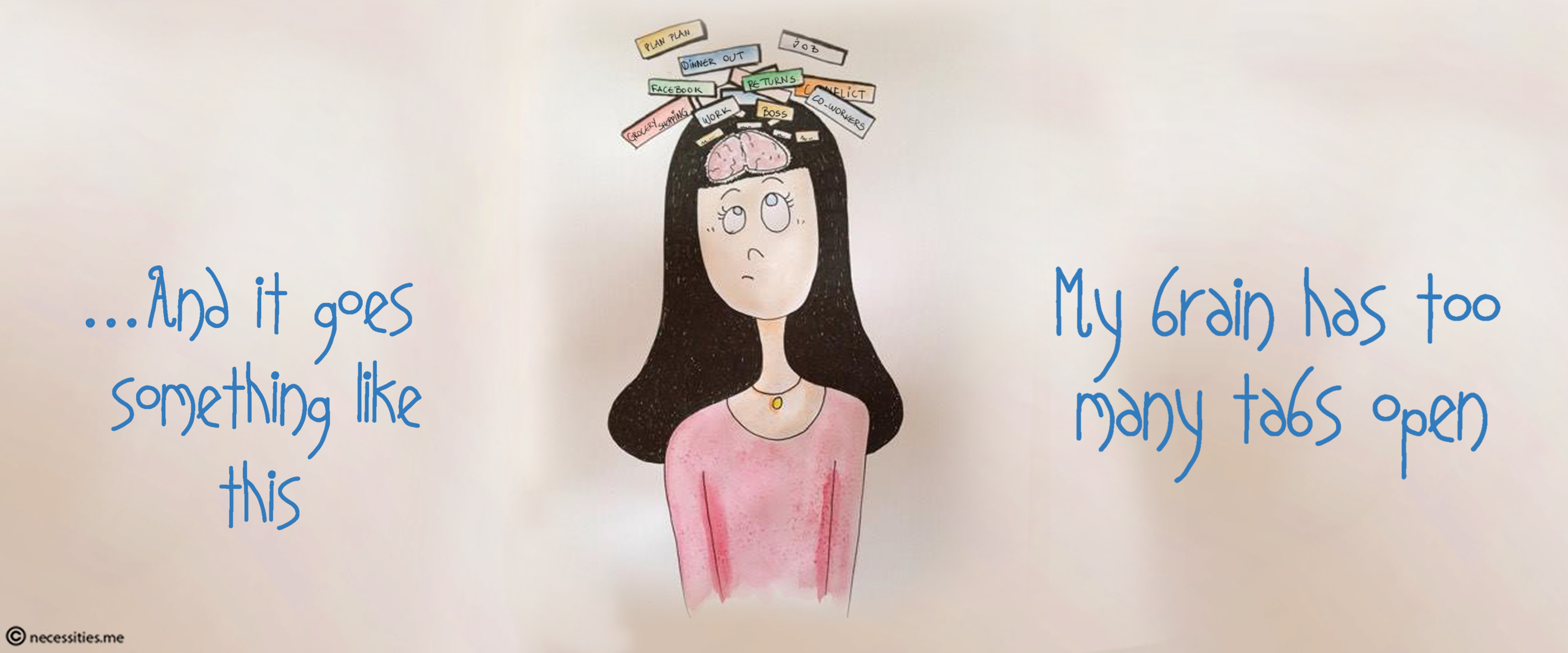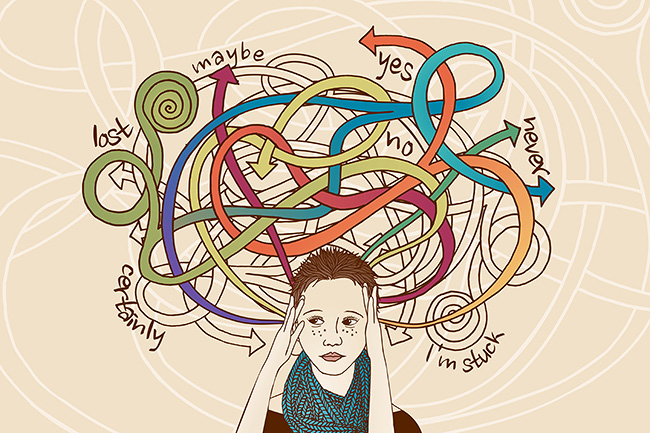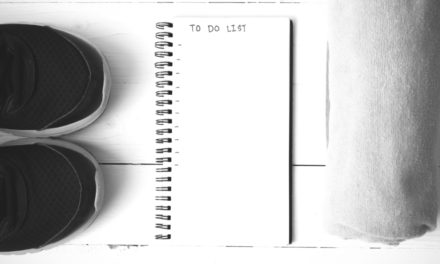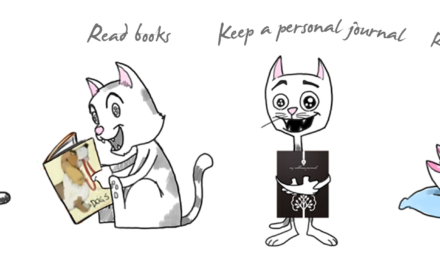Why we need to rethink multitasking
- Multitasking results in low productivity: Despite the common belief that a person who multitasks gets more done, multitasking has been shown to actually make you less productive. For someone who is bringing work home and unable to meet deadlines and commitments on an ongoing basis, multitasking may be one of the factors responsible for this outcome. Doing more than one thing at a time means you are distracted. Period. And when we’re distracted, we’re not leading productive lives.
- Multitasking blocks the flow of information: In order to best utilise our memory, our brains must be free to commit memories from short-term memory to long-term memory. Multitasking blocks this flow of information. Have you ever forgotten someone’s name even though you were just introduced? Were you trying to think of something witty to say, or simultaneously checking emails at the time? Have you completely lost track of what was just taught in a class because you were surfing the web while supposedly listening? The distraction caused by multitasking disrupts the brain’s ability to uptake all of the information. As a result, we’re unable to retain and recall these memories.
- Multitasking causes a circuitry overload: It’s a known electrical engineering fact that when we overload a circuit board, we reduce its performance. Multitasking does exactly that to our attention. When we have two or more things competing simultaneously for our attention, one is likely to receive less attention than the other and you are likely to short circuit.
- Multitasking negatively impacts learning: Transference is a process where we apply things we’ve learnt from one context to another. If you are multitasking you dramatically reduce your ability to do this (refer to reasons 2 & 3 above).
- Multitasking causes mental fatigue: The act of constantly dropping and picking up different tasks requires your brain to switch from one task to another. This results in mental fatigue and when practiced long-term you risk turning into somewhat of a monkey-mind, unable to focus and concentrate.
- Dehumanization: The quality of interpersonal relationships and our ability to relate to others is an important element for our wellbeing. Martin Buber (1878-1965) identified two approaches to interpersonal relationships –
- Thou approach understands life as a series of interactions where we engage others in a shared dialogue. Imagine the cues and opportunities to connect we miss out on when someone is trying to talk to us and we’re staring into our screens.
- The IT approach where you treat others like objects or as a means to an end. The end result of this type of interaction is dehumanization and disengagement. We are mentally absent but physically present.
- Increased risk of accidents: We all know texting while driving or walking can result in mishaps. Traffic safety is a big concern with handheld devices. Using your phone while driving might seem safe but it quadruples your chances of being in a crash.
- Scattered brain syndrome: This is a term we often use when we are unable to focus on a task. It’s caused by an undisciplined cerebellum. When multitasking becomes an automatic response in everyday living, we begin to lose control over our mental capacities and our days become scattered, lacking in focus and direction.
- Released stress hormones: Multitasking is not a natural human state and results in a release of the stress hormone Cortisol. This has pronounced impacts on our body and can disrupt all of our hormones, leading to weight gain, sluggishness, fatigue and a bunch of other health problems.
- Disrupts the state of flow: A state of flow is when we are completely engaged in a task or activity. It’s essential for the human mind to reach a flow state to enhance creativity and problem solving. Multitasking will prevent you from reaching this state and experiencing peak levels of productivity.
- Our Feelings: We feel compelled to multitask when we put others’ agendas and expectations ahead of our own priorities. By doing this we’re not really living lives that are true to us. When you catch yourself thinking thoughts like ‘I have to juggle everything just to get through’, I want you to question that belief by asking yourself ‘is that is really true’?
- Escapism: Multitasking is sometimes an alternative to escapism. We might be running from something or avoiding a pressing issue in our life. Inundating our days with multitasking seems to help avoid these nagging thoughts, but it’s only ever temporary.
- Multitasking shrinks your brain: Living a distracted life where we’re constantly switching between tasks and priorities is making us less intelligent. We are shrinking the size and capacity of our brain by multitasking because it causes our prefrontal cortex to contract.
Create a structure for reflection time that will help you understand how you think, why you multitask and what the hidden costs of multitasking are in your life. This will also help you challenge some of your core beliefs about multitasking.
Meditation, walking and journal writing are some of the ways in which you can create structure for reflection. Here are some journaling tips to get you started (if you prefer you can ask yourself these questions while meditating or walking). It only takes 10-15 minutes from your day. The benefits that you will reap from this exercise far outweigh the investment of a small amount of time and energy.
- Are you addressing or avoiding real life challenges?
- How much time are you spending each week on personal development as opposed to online?
- Recall examples of multitasking from your day and try to reflect on how you felt? (Specifically outline the incident). Did you feel anxious? Did you feel tense in your body? Does your day seem like a blur? (Clearly outline the experience along with physical and mental sensations you notice).
- Starting tomorrow, begin documenting your day (you can use the plan your day section in My Wellness Journal to document what type of activities you undertake during the day. Be as diligent as you possibly can. Start by recording distractions, activities, level of engagement, mental presence, emotional and physical symptoms.Remember life must be lived forward but can only be understood backwards. Recording this information in My Wellness Journal will help you see the multitasking booby traps in your life. Share with us your reasons for hopping off the multitasking bus.
Words To Grow By
Gary Keller
“You can do two things at once, but you can’t focus effectively on two things at once.”





